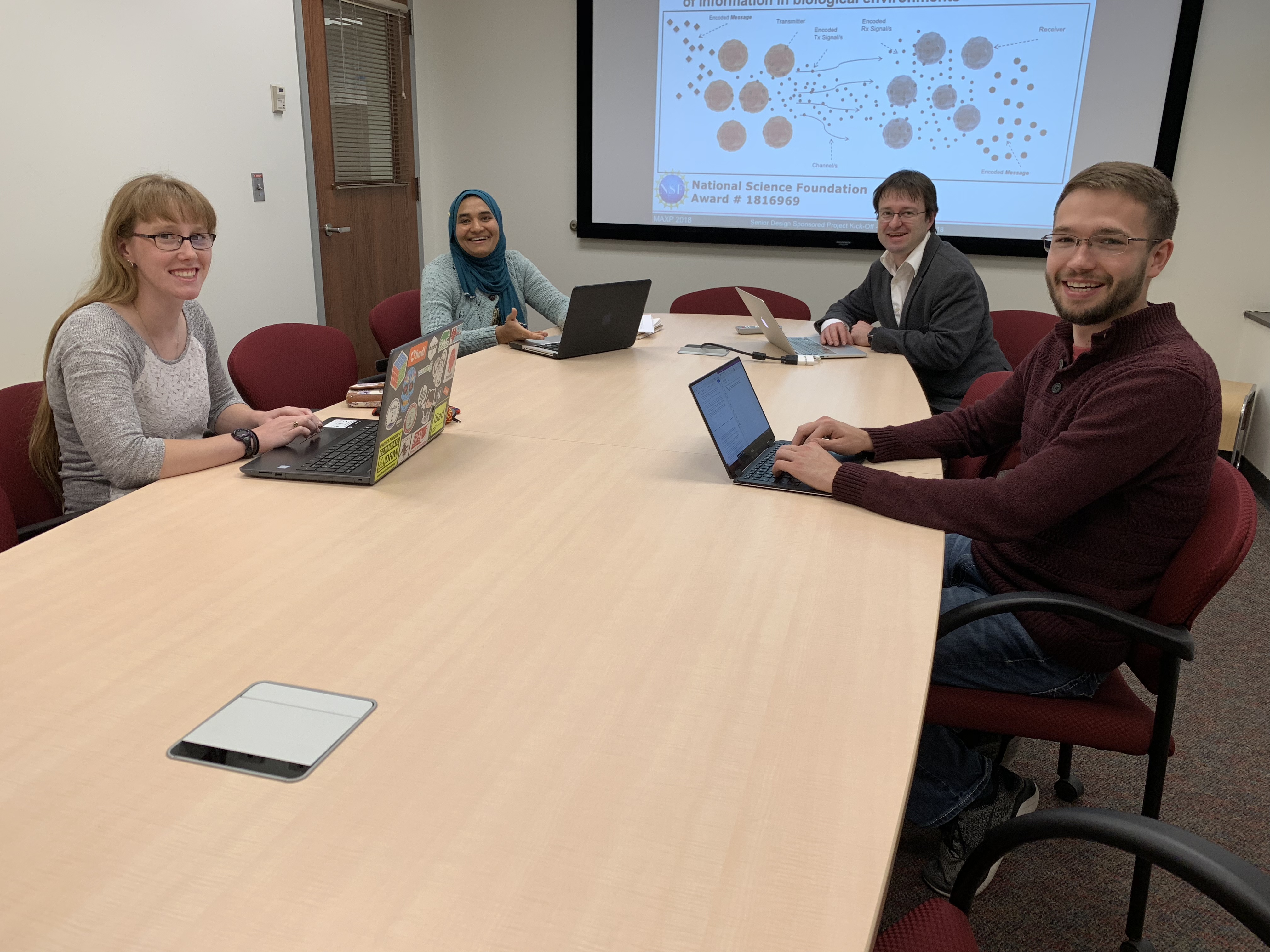
A new grant from the National Science Foundation will expand bioengineering research at the University of Nebraska–Lincoln and STEM learning opportunities for high school students.
The grant will fund the WetComm project, which focuses on “wet communication,” a new area of study being developed by Computer Science and Engineering assistant professor Massimiliano Pierobon.
Wet communication is the transmission of information in biochemical environments. New methods of engineering cells could revolutionize biology-based fields and daily life for many. Just a few of its potential applications include tissue re-engineering, cancer treatments, and environmental improvement.
“The idea is to make designing communication systems with biological cells as easy as designing systems for cell phones or computers,” Pierobon said.
Not only would the research open many new possibilities in the biology and technology fields, but it will also offer Lincoln students at the high school, undergraduate and graduate levels many opportunities to explore—and create—new developments.
WetComm will be a three-pronged project, focusing on research, development, and outreach. Students at the university level will be developing applications for the project, using those tools to conduct research and measure results, and then sharing their work with students at Lincoln East High School.
Among others, a team of undergraduate students currently enrolled in Senior Design will be contributing to the project development part. Under the advisement of Pierobon, they’ll spend the 2018-19 school year building web applications with the capability to estimate and analyze information exchange in biochemical reactions and engineered biological cells.
Senior Colton Harper is one of five undergraduate students on the Senior Design team, and said this project fit perfectly with his academic goals.
“This project is on the edge. It is a software development project, but it’s right there hugging research,” Harper said. “That really interests me because I want to go into research and pursue that path, especially working on a project that will be directly helping me with my research.”
Harper has been working with Pierobon on a variety of papers and projects involving biological programming since his freshman year. He switched from a biology major to a computer science major following a class lecture from Pierobon about his research. Over the summer, Harper traveled to Italy to study with Pierobon’s colleague at Politecnico di Milano. Following his May 2019 graduation, Harper plans to earn his master’s degree there, and then return to Nebraska to complete a Ph.D. with Pierobon.
“No one before has really written their thesis or done their graduate work on communication theory in living systems, so I’ll be in the first cohort to do so,” Harper said. “There are a few researchers like Dr. Pierobon who have studied this, but no one has gone through a degree program tailored toward this sort of research.”
Harper also presented his research and the WetComm project to students at Lincoln East High School last month. Those interested will have the opportunity to attend monthly learning sessions to expand their knowledge in the subject area.
“What we want to do is introduce programming biology and wet communication to them, and follow them through graduation and into college and see what they pick [to study],” Pierobon said. “Our objective is to increase the Computer Science and Engineering picks over others, especially with minorities and high school girls, which are generally more geared towards life sciences.”
Harper agreed that introducing students to programming biology before college is beneficial for both young students and a growing field.
“I think investing in this outreach into high schools and maybe even middle schools, develops relationships between the lab and the students,” Harper said. “You can spark interest and develop a really strong research lab, and what we’re trying to do with this grant is develop the field of biocomm.”
Pierobon also hopes that the WetComm project will not only advance capabilities and discoveries, but also increase awareness and interest in the subject itself.
“You have to do very advanced research on one side and on the other side, you have spread research around,” said Pierobon. I always say, ‘You’re not a real researcher if you cannot tell people what you are doing.’”